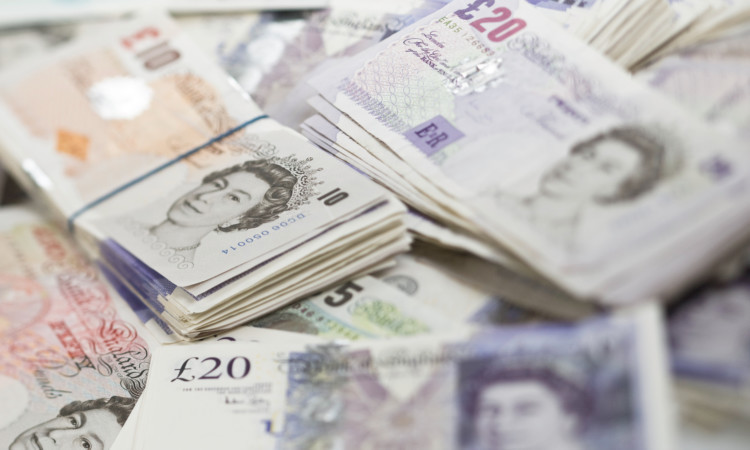
The £500 referendum figure represents a more symbolic issue that just how much money is in your pocket.
So what wouldn’t Scots do for £500? Eat cockroaches, swim the Atlantic or even back England to win the World Cup?
This weekend Scots celebrate the life of a poet who praised independent mindedness and mocked the obsession with wealth.
And yet it seems the votes of modern Scots can be bought for just £500. Robert Burns must be birlin’ in his grave.
The latest Scottish Social Attitudes survey found a majority would vote Yes in the independence referendum if they were guaranteed to be £500 better off, but No if they’d be £500 worse off. Are Scots really so fickle we’d trade freedom for the price of a new sofa?
What really lies behind that embarrassing poll result?
Money, of course, is too tight to mention. But I think £500 is symbolic. It’s an embodiment of our hopes, fears and the deep-seated (though completely unfounded) worry that Scots couldn’t organise the proverbial wotsit in a brewery without help. So you could look at the £500 swither another way.
If Scots wind up £500 better off after independence it will prove we are a capable people who can manage ourselves. In which case, independence is the right course to choose.
If we end up £500 worse off, it’ll prove we can’t survive without the UK comfort blanket and we need to be part of a bigger economic unit.
The fact Scots switch so easily between two contrary positions simply means they haven’t decided which scenario is more likely yet.
And who can blame them? For the Yes campaign an independent Scotland is all sweetness and light. For Better Together it’s Armageddon. Hence the strange phenomenon of swithering Jocks.
Their votes aren’t going to be bought by the highest bidder. They’re waiting for some certainty about which post-independence scenario is more likely. If it looks sunny, many will vote yes. If it looks gloomy, many will vote no.
That’s perfectly rational. It shows how hard it is for folk to visualise the future not surprising when politicians can’t conjure up a detailed, believable picture either.
But it also shows many Scots see devolution and independence as stages on a journey not radically different directions.
Their final choice will be a judgement call weighing Scotland’s prospects within the UK versus its prospects as a new, independent state. It won’t be based on an emotional attachment to either “side”. And what does being better off really mean anyway?
A report on inequality by Stirling University last week suggested an independent Scotland would not reach Nordic living standards just by raising taxes.
Actually, I agree. Folk in Norway, Sweden, Finland and Denmark live longer, healthier lives than Scots, pay higher taxes and have the triple A credit rating of top economic performers.
But success is only partly created by higher taxes. It’s mostly created by what the Nordics actually do with their taxes. They spend them on excellent public services. That’s why Nordic voters are £500 better off without getting any extra cash in their own individual pockets.
For decades they’ve opted to let the government invest their £500 in affordable public transport, high quality old folk’s homes, excellent state schools that make private schools unnecessary and affordable kindergartens that mean women work and pay tax to help keep the whole system afloat.
Pollsters suggest people can only be better off with money in their own pockets. Deep down we know what the Nordics have always known the good society shares risk and cash.
So next time you’re asked the £500 question, take inspiration from the late, great, Magnus Magnusson and say “pass”.

Enjoy the convenience of having The Sunday Post delivered as a digital ePaper straight to your smartphone, tablet or computer.
Subscribe for only £5.49 a month and enjoy all the benefits of the printed paper as a digital replica.
Subscribe